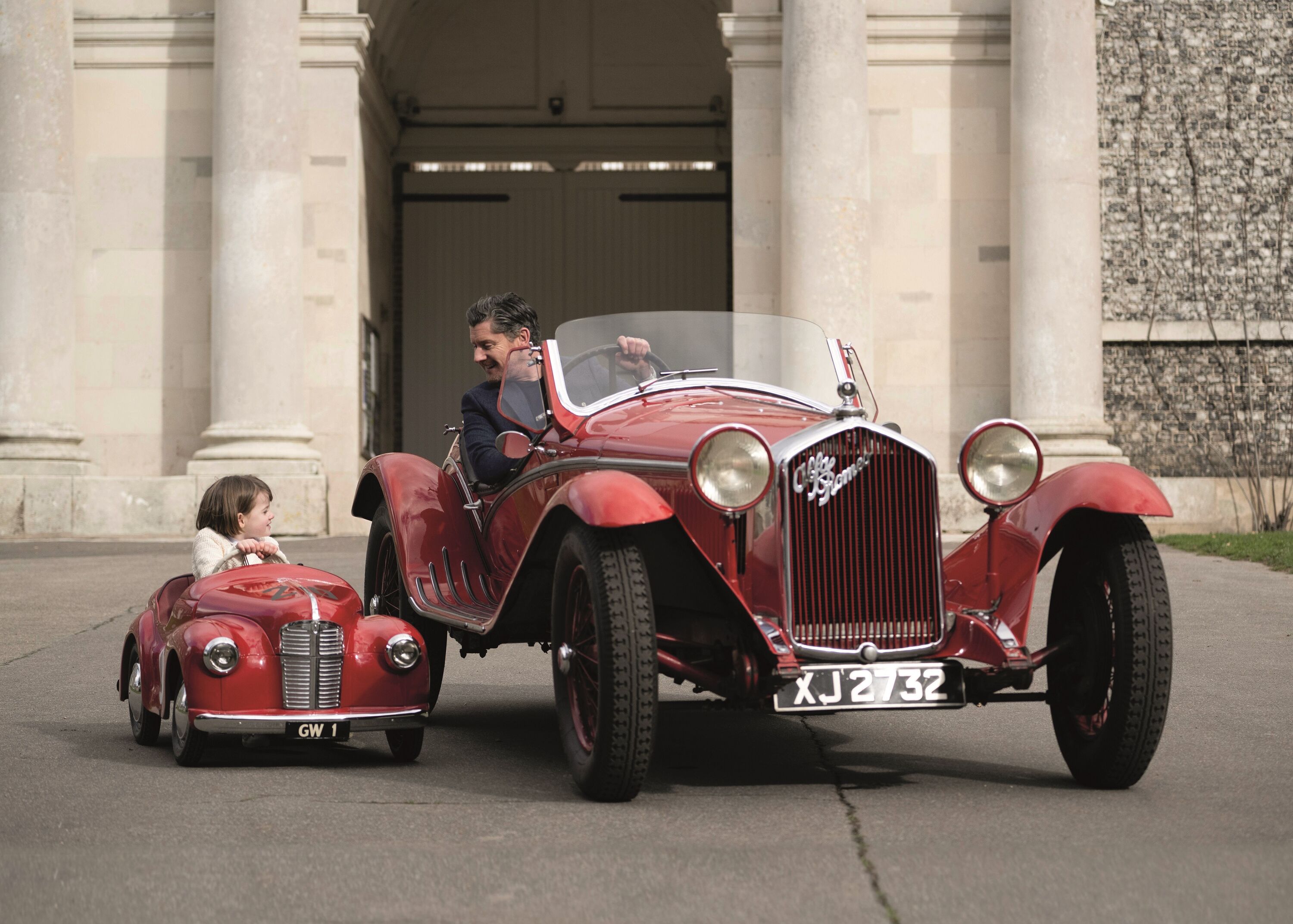John Simister: The Lotus Cortina is the sweetest classic sports saloon
 John Simister
John Simister
Sad news that rapid racing driver and mind-training guru Sir John Whitmore is no longer with us. It got me thinking about Lotus Cortinas, the ones I have driven and the ones I used to race back in the 1960s.
That didn't mean I was sharing racetracks with Sir John as he raced his red-and-gold, Alan Mann-entered Cortina to victory in the 1965 European Saloon Car Championship. Wrong space-time continuum. Rather, I was Sir John, in my head, racing my 1/32-scale Airfix slot-car version, lovingly painted by me in the Whitmore car livery complete with KPU 392C number plate.
Like the real Alan Mann cars, my Lotus Cortina had started out in Ermine White with olivey-green side stripes and tail transom before wearing the team colours. Also like the Alan Mann cars, it wouldn't readily lift its inside front wheel in a high-g corner. The real ones wouldn't do it because they were set up with a softer front end and a stiffer rear than the works Lotus cars, to keep them more stable in a long, fast bend. My slot-racer wouldn't do it because, being a slot-racer, it had no suspension.
It was many years later that I finally got to drive a real Lotus Cortina, the fine example on Ford's heritage fleet. I had driven Mk1 Cortinas and Lotus Elans, but never an Elan-engined Cortina with lowered suspension, quicker steering and a whole lot of other raciness-enhancing tweaks. It did not feel quite as keen as I thought it would, the extra weight taking the edge off the twin-cam engine's vigour and the steering having the soft straight-ahead springiness often found when there's a steering box rather than a rack between you and the front wheels. But it was fun nevertheless.
Then, over the next few years, I managed to sample several more Lotus Cortinas covering all three forms of production car, a racer and one unique, extremely special prototype.
As launched in 1963, the hottest Cortina had some aluminium panels and coil-spring rear suspension instead of the usual Cortina leaf springs, axle location being instead by an A-bracket. Lotus's Colin Chapman thought this would make for more precise handling and faster lap times for the planned racing career, but it led to problems with oil leaking out of the back axle owing to the distorting stresses newly imposed on it. So halfway through the Mk1 Lotus Cortina's life, it reverted to leaf springs, although they were helped in their axle-location task by a pair of radius arms.
Comparing the two is fascinating. Chapman was right that his favoured rear suspension made the Cortina respond more precisely, taking some of that springiness out of the steering, but a leaf-sprung LoCort compensates with a wonderfully gung-ho approach to a fast bend, the initial tendency of the front wheels to drift wide quickly overcome by the beginnings – and continuation, if you like – of a fine four-wheel drift and ultimately, a powerslide. It all happens gently, predictably and very amusingly, your accelerator foot fine-tuning the directional approximation of the steering.
Neither type of Cortina is better here. They're just different: the earlier is more cerebral, the later more physical. The racer I drove, owned by Andy Dee-Crowne and originally a press road-test car, was also leaf-sprung and had the same handling balance it would have had when a road car, just with more grip, less body roll and rather higher speeds. It was extremely good fun, helped by a punchy, rorty engine and a bit of weight reduction, and at last I could truly feel something of what Whitmore experienced.
And the other variations I've been fortunate to try? One was a boxy Mk2, its spirit dampened relative to the Mk1's but a fine four-seater express nevertheless. The other was an experimental Mk1 built by Lotus with a widened version of the Elan's strut-based independent rear suspension. Apart from its soft springs, a Chapman speciality, it felt amazingly modern, planted firmly on the road with steering of surprising precision. It was still the same steering box, which proved brilliantly what people sometimes forget: that rear suspension plays a very big part in how a car responds to steering inputs.
Thus re-engineered, the Lotus Cortina could have been one of Europe's best sporting saloons. But it wasn't to be. Ford refused to sanction production and wanted the car destroyed, but instead the Cortina continued its life as Jim Clark's daily driver, and was later bought from Lotus by Clark's brother-in-law after the fateful Formula Two race at Hockenheim.
Nowadays a Lotus Cortina is astonishingly valuable, given its simple origins, and a good one is great entertainment, especially with a little tuning attention to that revvy twin-cam. The purists will favour an A-bracket car, but the only reason I might do the same is because the earliest Cortinas have a very cool flip-tab indicator switch instead of a boring old stalk. That said, Sir John Whitmore's machine, as a 1965 model, would have had the stalk. Stalk and leaf springs it is, then. And an injection of £50,000 into my bank account.
Lotus
Cortina
Ford
John Whitmore
John simister


















